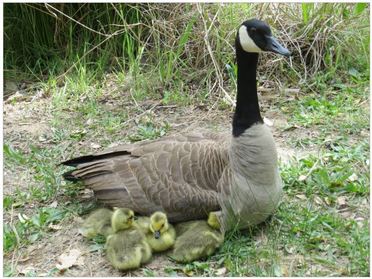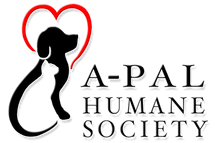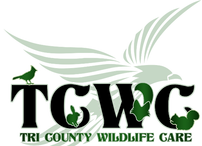Bread is for Sandwiches

One of my favorite things to do as a nature-loving child was to go down to the local park and feed the ducks. Like most folks, we fed them a lot of bread. The ducks liked bread and we didn’t know that it was unhealthy for them.
Why is bread bad for birds? Bread has very little nutritional value for birds and feeding them can cause them to become dependent on human-provided food instead of natural, healthy foods. Feeding them might even prevent ducklings from learning how to naturally forage for themselves. Foods like bread can also cause a wing deformity called “angel wings” that causes the last joint in the wing to become distorted and stick out sideways. Sometimes diets too rich in protein makes wings too heavy and they will twist the joint. A bird with angel wings or related deformities cannot fly and can’t be cured in adults. Lastly, human food can attract other animals, like predators, and pollute the water by encouraging mold, algae, and cyanobacteria growth.
So, what can you feed to waterfowl? The California Department of Fish and Wildlife (CDFW) considers most ducks in park ponds to be feral domestics, hybrid, or “semi-domestic” and has no jurisdiction over them. That being said, the CDFW is concerned about managing them and preventing diseases. They discourage feeding the birds because it can make them dependent on humans and lead to overpopulation. Ducks are omnivores and would naturally eat a wide variety of things like algae, worms, snails, berries, frogs, and fish. If you do want to feed the ducks, try lettuce and other leafy greens, cabbage, peas, beans, and small slices of other vegetables like cucumbers, beets, and squash.
LEARN MORE:
CDFW Guide for Public Park Ponds
Information on Feeding Ducks
Why is bread bad for birds? Bread has very little nutritional value for birds and feeding them can cause them to become dependent on human-provided food instead of natural, healthy foods. Feeding them might even prevent ducklings from learning how to naturally forage for themselves. Foods like bread can also cause a wing deformity called “angel wings” that causes the last joint in the wing to become distorted and stick out sideways. Sometimes diets too rich in protein makes wings too heavy and they will twist the joint. A bird with angel wings or related deformities cannot fly and can’t be cured in adults. Lastly, human food can attract other animals, like predators, and pollute the water by encouraging mold, algae, and cyanobacteria growth.
So, what can you feed to waterfowl? The California Department of Fish and Wildlife (CDFW) considers most ducks in park ponds to be feral domestics, hybrid, or “semi-domestic” and has no jurisdiction over them. That being said, the CDFW is concerned about managing them and preventing diseases. They discourage feeding the birds because it can make them dependent on humans and lead to overpopulation. Ducks are omnivores and would naturally eat a wide variety of things like algae, worms, snails, berries, frogs, and fish. If you do want to feed the ducks, try lettuce and other leafy greens, cabbage, peas, beans, and small slices of other vegetables like cucumbers, beets, and squash.
LEARN MORE:
CDFW Guide for Public Park Ponds
Information on Feeding Ducks

